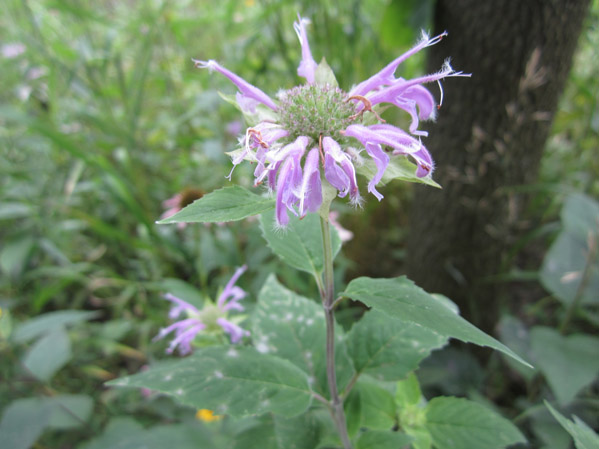Wild Bergamot (Monarda fistulosa) is a common wildflower found throughout Michigan. It grows on dry edges of forests, thickets, and clearings.
Wild Bergamot is one of many different varieties of what is commonly known as “Bee Balm.” According to many sources, they are largely interchangeable and can all be used for medicinal purposes. Bee Balms are good for cold and flu symptoms, UTIs, yeast infections, digestive woes, wounds, burns, and more.
Identification
Wild Bergamot is a member of the mint family that features highly aromatic flowers on plants that grow 2 to 3 feet tall. The flowers have a lavender color with one growing on each plant. Flowers have narrow, lipped tubes in crowded heads:
The flowers grow on square stems that are slightly reddish in color:
Wild Bergamot Flower, Stems, and LeavesLeaves grow oppositely up Wild Bergamot’s stem and smell minty when crushed. The leaves are triangular to oval or lance shaped.
A Close-up of Wild Bergamot LeafHarvesting
To harvest Wild Bergamot, cut off the plants near the ground. You want both the leaves and the flowers, as both can be used.
Wild Bergamot can be dried (hang it for a couple of weeks, with flowers and leaves) or made into a tincture. Wild Bergamot tea is generally used for a nerve or stomach tonic. For additional medical uses, consult an herbal medicine book.
Local Wild Plant Profile: Wild Bergamot was published on August 29, 2013